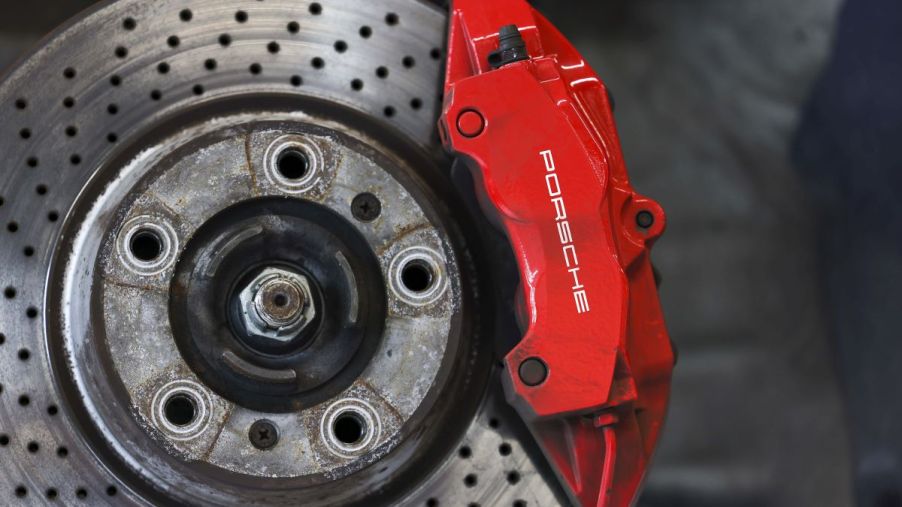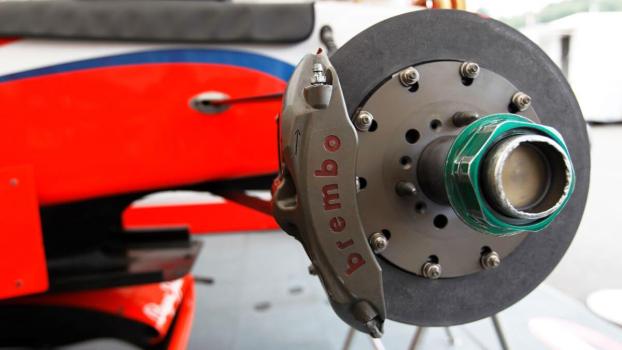
What’s the Difference Between Coated and Non-Coated Brake Rotors?
To summarize the disc brake system in most cars, braking starts with the brake pedal applying pressure to the master cylinder, which pushes brake fluid through lines to calipers. The calipers squeeze brake pads against the spinning rotors to slow wheel rotation. While colorful calipers and stainless steel braided lines get a lot of attention, coated brake rotors claim to add longevity to your car’s brake system. Coated rotors are easy to install whenever performing brake system maintenance, but are they worth the extra cost over uncoated/non-coated rotors?
Is there a problem with uncoated brake rotors?
The most significant drawback to uncoated brake rotors is their tendency to rust. Napa says over the last decade, car designs improved fuel economy and increased brake rotor exposure to the elements, amplifying rust potential. The rust is often superficial, but according to Protex, it could shorten the rotors’ lifespan in extreme conditions.
How is a coated brake rotor different?
MotorTrend says there is no structural difference between uncoated and coated cast rotors. Manufacturers typically dip or wash rotors in a zinc or other proprietary solution before allowing them to dry at ambient or elevated temperatures. While the coating offers some level of rust protection for a while, you should consider a few drawbacks before putting them on your car.
What are the pros and cons of coated brake rotors?
The most apparent pro already mentioned is the coating’s rust-retardant benefit. Also, the cost difference between coated and uncoated rotors is minimal. All Rotors claims its toxin-free rotor coating stands up to “480 hours of salt water exposure” in testing. For example, the coated rotor option from All Rotors only adds $10 to the cost of each Honda Civic rotor in a set of four.
Some downsides to coated rotors
If you prefer the rust-free look and feel compelled to capitalize on the extended life the coating could provide, there’s nothing wrong with buying coated rotors for your car. However, it’s important to note that rotor coatings do not last forever and will degrade over a few short years. Also, the coating can get worn off from the face of the rotor as soon as you apply the brake leaving the shop.
Mechanics often prefer installing coated rotors because they don’t require cleaning out of the box like uncoated rotors, which come covered in protective oil until installation. Coated rotors depend on the brake pads to wipe away the coating. However, some coatings could contaminate the new brake pads you paid for.
If coated rotors were better in every way, automobile racing teams would use them. However, MotorTrend points out that most serious racers still use uncoated cast iron rotors. Of course, NASCAR teams aren’t concerned with driving on snowy roads treated with salt and other chemicals.
Are coated rotors a good investment?
Although the coating only lasts a few years, the minimal cost of coated rotors likely offsets the downsides. Eliminating rusty rotors is especially important if you’re particular about the looks of your car at a detailed level. However, unless you drive in harsh conditions, you won’t see any extended rotor life benefits from the coating.




